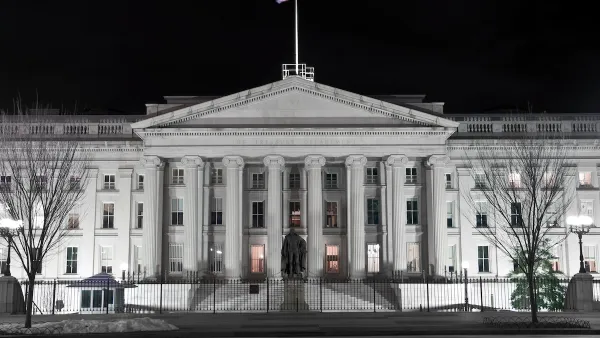Although it is widely seen as a national issue, decisions made at the local level often have a stronger impact on inflation than federal policies.

While it may be easy to blame the federal government for rising inflation, Alex Yablon, writing in Vox, argues that “many of the worst bottlenecks making the pandemic economic recovery so painful were put in place by political actors much lower down the food chain, from governors to city councilors to everyday citizens.”
“State and local jurisdictions, not the Fed or the feds, determine how much housing is built and where, when to permit cheap clean energy sources and vital energy transmission lines, and whether to expand ports and logistics infrastructure. Across the country, local legislators, executives, and public authorities have declined to spend more to improve economic capacity, or placed additional hurdles in the way of badly needed new development.”
Yablon outlines three areas where local governments have exacerbated the situation, as well as suggestions for how to reverse the negative impacts: energy and transportation, where local officials can support the transition to renewable energy; housing, where local decisionmaking about zoning and land use affect supply; and logistics infrastructure, which is often controversial at the local level. Too often, major infrastructure projects cross multiple jurisdictions and agencies with competing interests and priorities. As Yablon writes, “These efforts require a level of coordination and prioritization policymakers haven’t practiced in decades.”
FULL STORY: Mad about inflation? Blame your local officials.

National Parks Layoffs Will Cause Communities to Lose Billions
Thousands of essential park workers were laid off this week, just before the busy spring break season.

Retro-silient?: America’s First “Eco-burb,” The Woodlands Turns 50
A master-planned community north of Houston offers lessons on green infrastructure and resilient design, but falls short of its founder’s lofty affordability and walkability goals.

Delivering for America Plan Will Downgrade Mail Service in at Least 49.5 Percent of Zip Codes
Republican and Democrat lawmakers criticize the plan for its disproportionate negative impact on rural communities.

Test News Post 1
This is a summary

Test News Headline 46
Test for the image on the front page.

Balancing Bombs and Butterflies: How the National Guard Protects a Rare Species
The National Guard at Fort Indiantown Gap uses GIS technology and land management strategies to balance military training with conservation efforts, ensuring the survival of the rare eastern regal fritillary butterfly.
Urban Design for Planners 1: Software Tools
This six-course series explores essential urban design concepts using open source software and equips planners with the tools they need to participate fully in the urban design process.
Planning for Universal Design
Learn the tools for implementing Universal Design in planning regulations.
EMC Planning Group, Inc.
Planetizen
Planetizen
Mpact (formerly Rail~Volution)
Great Falls Development Authority, Inc.
HUDs Office of Policy Development and Research
NYU Wagner Graduate School of Public Service





























